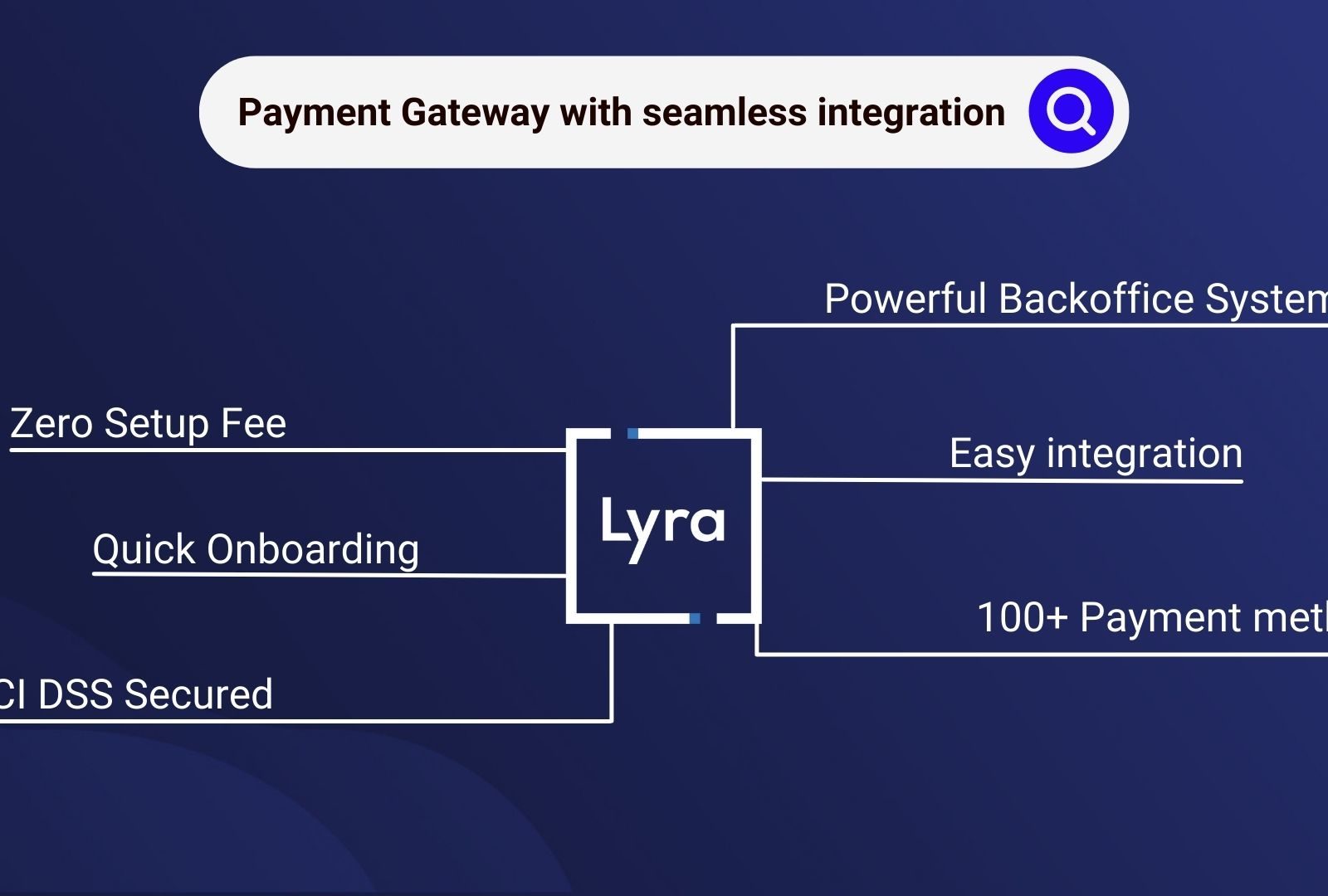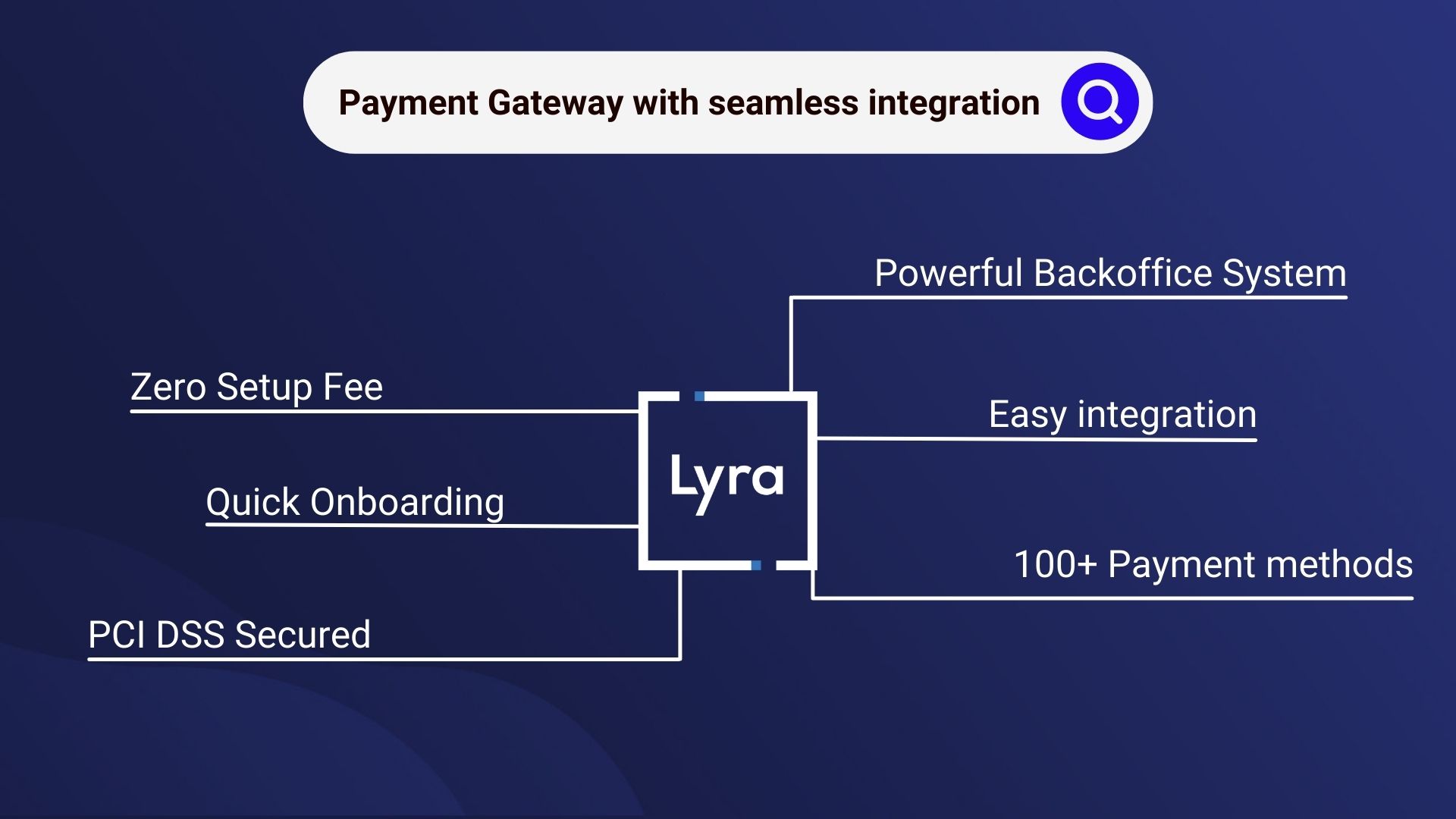Payment Gateway Integration And Why You Should Choose Lyra!
Whether you own a retail store, a travel and tourism business, an online learning institute, a hotel, or any other business which would involve visitors making online transactions. (in today’s day and age, it is extremely essential for any business to accept payments digitally, beware February 2020 is already here!), you would definitely need to make the payment gateway your number one priority.
And for any business that accepts payments online, a payment gateway is the number one priority.
For any merchant or business owner, it is important to know what is a payment gateway, How it works, and what features it provides.
Read all about the payment gateway here.
Now that you know everything about the payment gateway, it’s time to choose one for your business.
Types of Payment Gateway – how to choose a payment gateway provider for your business
Though finding a suitable payment gateway is a time-consuming process, it is essential to choose the right one.
Similarly, Choosing a payment gateway impacts your customer’s experience and in turn on your sale. It can be an easy task if you do proper research and understand your business needs.
Here is the checklist you should start with before choosing a payment gateway:
- Service cost for the Payment Gateway
- Does a Payment Gateway provides
- Support for online store’s country
- Virtual terminals
- Fraude Security/ani-fraud protection
- A customizable payment page
- Scalability and adaptability of the payment gateway
- Easy integration process
- 24*7 customer support
- Is the payment Gateway PCI DSS certified
- Does it provide an active checkout experience and is receptive to different devices?
Integration of payment gateway
Types of payment gateway integration methods
A payment gateway, when integrated with an application or an e-commerce platform, helps it receive payments via two payment options:
- Hosted Page redirects the customer from an e-commerce platform/portal/application to the payment gateway where the customer selects the payment option and fills in the card details. In this case, designing the page or validations is not required. This option keeps the card details with the payment gateway, which makes it highly secured. It does not even need PCI DSS compliance. It is secure, simple, customizable, and the best fit for small or local businesses. that are more comfortable using an external payment processor.
- Embedded Form lets the end-user (customer) remain on the e-commerce platform/portal/application to make the transaction happen without redirecting him/her away. This option needs the e-commerce platform to design its own payment page and provide a validation check at the application end only. In other words, Since all the card details here are stored in the application, it requires high-level security to be maintained with PCI DSS compliance. It is flexible, customizable, and the best fit for medium and large businesses that rely heavily on branding and user experience.
- Direct post-integration allows your customers to shop and pay without leaving the website. After clicking the buy now/purchase button, In other words, this payment gateway assumes that the transaction data will be posted on the gateway instantly without being stored on the server. It is customizable, the merchant doesn’t need PCI DSS compliance, is customer-friendly, and best fit for all types of businesses.

Integrating the Payment Gateway: steps
- Set up your e-shop: This can be done by hiring a web developer or using any third-party software.
- Add payment methods: This can vary from service provider to service provider, but as a merchant, you have to choose a payment gateway that will allow you to add a wide variety of payment options.
- Test the gateway: This step is for ensuring that the payment gateway is working correctly following the protocols.
Cost of PG Integration
The cost of the payment gateway is one of the most important points to consider before setting up a payment gateway.
However Different types of costs come into play for different types and providers of payment gateway.
There are registration, setup, and monthly/yearly charges. Then there are transaction, processing, fund transfer fees and termination, refund, and chargeback fees.
Lyra Payment Gateway
With zero setup fees and no maintenance charges, Lyra offers a secure payment gateway with which the merchant can be onboarded within 30 minutes.
In conclusion, Payment gateway integration is not an easy task. Choosing the best-fitted payment gateway can be a time-consuming and hectic task. So don’t spend your valuable time on this, just give us a call and a tailor-made payment solution will be at your doorstep.



